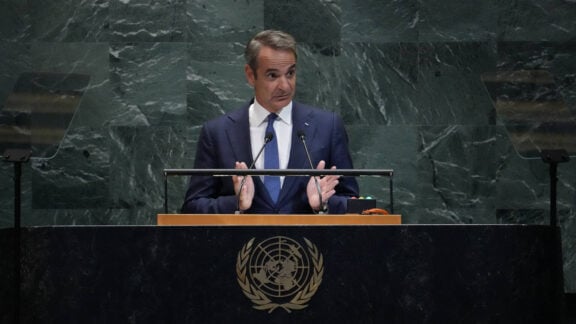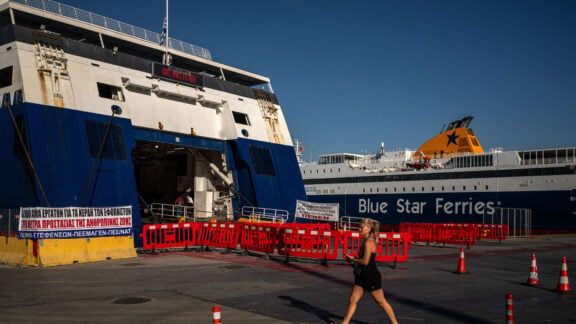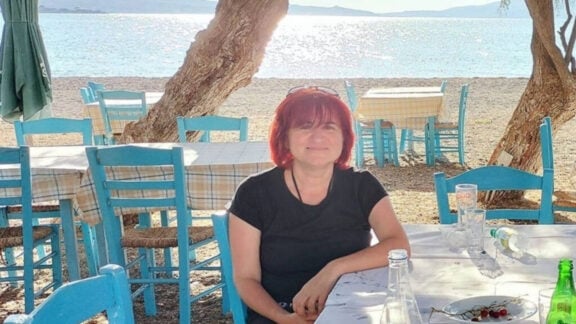One of the most impressive achievements of the Hellenes is the many colonies they created in antiquity. One can imagine building a new settlement near your own city, yet the mind goes into overdrive when you think about what the ancient Greeks achieved.
Taking members of the polis—engineers, women, children, men, farmers, scholars—and planting them thousands of miles from their place of birth is incredible. Can you imagine the feeling of being homesick? There was no YouTube or planes back then to connect you with home. You would be lucky to return even once in your lifetime.

Greek genius and grit: From Massalia to Monaco
Greeks created colonies across the Black Sea, Mediterranean, Balkans, and parts of Asia from the eighth century BC. Alexander and his successors continued this development, as did the Byzantine Greeks. I have been to many of these cities, which today are usually medium to large urban centres. The most famous in Europe are those of Magna Graecia—better known as Greater Greece in ancient and Byzantine times—a vast area of Southern Italy once dominated by Greek colonies.
What intrigues me the most about the descendants of Magna Graecia is that they have a connection to the region dating back over 2,800 years. These Greeks dominated economic, social, and political life. Mathematics, science, theatre, and philosophy flourished. Today, most of the Greek speakers live in Calabria and Apulia, places I visit every few years.
There were dozens of colonies and settlements in nearby Spain, France, Monaco, and Portugal; the last consisting of a few traders—and a visit by Hercules and myself. The Greeks did not dominate these regions as they did Magna Graecia or the Cyrenaica in Libya, for example.
One of the first Greeks to make it to the edge of the Mediterranean? A powerful and heroic man—and I’m not talking about me here—was the great Hercules, who built the Pillars of Hercules on either side of the Gibraltar Straits to signify the supposed geographical limit of the known world.
Massalia, a large city in what is now France, flourished and founded a number of other colonies in the region including Agathe, Olbia, Antipolis, and Nicaea. Nicaea was founded in 350 BC after a victory over a neighbouring kingdom. The city was named after the Greek goddess of victory, Nike—and is not to be confused with any sponsorship deals. It’s amazing that from such humble Greek origins, these are today large, vibrant cities across the Western Mediterranean.
Another city that owes its development to the Greeks is Monaco. Founded as Monoikos by the Massalians, it is also known as the Port of Hercules, after he stopped by here during his travels. Like Hercules, I too stopped here many years ago for a quick drink—though I wish it had been a frappe.
Greeks were responsible not only for establishing many prominent colonies and trade routes—they introduced olives and wine to places such as France and Italy. Think about it: what would the world be like if French and Italian wine was not produced the way we know it today?

The rise of Rome and the fall of Magna Graecia
Rome grew in strength during the years of the Hellenistic era, when the successors of Alexander fought for control of the empire. Rome—with a growing population and an increasingly powerful military and economy—expanded across all of Italy, taking Magna Graecia by 260 BC. Sicily was held mainly by Carthage and the Greek city of Syracuse. Within decades, Carthage had been booted out of Sicily, and Rome had acquired the islands close to France. Rome was within touching distance of the independent Greek cities of Syracuse and Marseilles.
Over the next twenty years, Rome changed from being a powerful republic to being on the verge of becoming a large empire, as she defeated Carthage in Africa and conquered the Western Mediterranean.
Sicily hosted Greek colonies since 735 BC, boasting countless temples—many of which have survived. Some of the famous names include Aeschylus, the poet Stesichorus, Gorgias the philosopher, the writer Theocritus, Empedocles, and rulers such as Gelon, Hieron I, Dionysius I and II, Agathocles, Hieron II, and Timoleon. With the eclipse of Greek power by Rome, the Greek cities of the West essentially lost independence after four to five centuries of controlling their own destinies. The most important of these cities was arguably Syracuse.
By 400 BC, it was the most populous Greek city in the world, boasting over a quarter of a million people—far superior to the deeds of Marseilles. Impressive. The city at times ruled Sicily and competed with Carthage, Rome, and other Greek cities to rule the region. Alcibiades and the Athenians led a disastrous campaign against Syracuse during the Peloponnesian War. Why on earth would Athens attempt to fight a city of equal power after not having defeated Sparta? A folly that led to a significant depletion in Athenian military resources. Syracuse was known for having tyrannical leadership—hence Athens thought this could be exploited. Bad move.

Syracuse: The last stand by the Hellenes in the West
Syracuse was also known for its great minds and philosophers. One of the most famous was the mathematician and engineer Archimedes. Among his inventions were various military engines, including the Claw of Archimedes.
When Syracuse was taken by Rome, Archimedes was deep in concentration working on a new formula. A soldier barged in, unaware of who he was. Failing to notice the soldier, the great mathematician was slain for ignoring him. The story goes that the commanders had issued orders that he was not to be harmed. The soldier was subsequently put to death or exiled as punishment.
In 215 BC, Hieronymus felt that Roman power was on the wane after a defeat by the brilliant Hannibal in Italy, and the two became allies. Rome responded with a siege that lasted until 212. Their downfall came about due to a focus on festivities for the god Artemis, rather than remaining alert for possible Roman intruders. The city felt it was more important to partying Greeks—typical. Rome took advantage of a smaller defence force and some drunken Hellenes. Ancient Greek control over Sicily was at an end—almost.
Diodorus of Sicily tells us of the slave Eunus, a Greek Syrian, leading a revolt in 139 BC. He was joined by Cleon, and between them, fifteen thousand rose to the challenge of freeing Sicily from Rome, capturing many towns. They were defeated seven years later in their stronghold near Enna.
The Greek language likely filtered out several centuries later, as the proximity to Greko Calabria and the advent of Byzantine Greeks in the sixth century AD ensured that Greek continued to be spoken.
Today, Syracuse remains one of the biggest cities in Europe with Greek and Roman ruins aplenty. A small expat Greek community can be found, along with a Greek taverna or two—in case you want to avoid the pizza and reconnect with the Greek origins of Syracusans.
*Billy Cotsis is the author of Aristotle Roberto Carlos Smithopoulos and is the director of the Magna Graecia documentary series.









